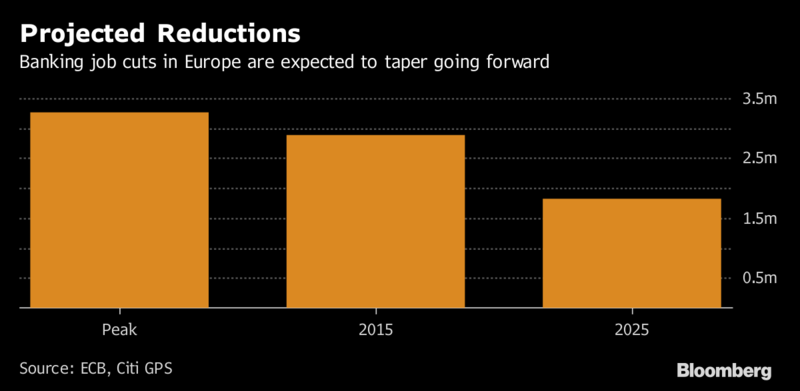In the not-too-distant future, the state of many industries will include employees that work for the machines and those that work with the machines. The rest are likely to displaced--800 million or more--by the robot revolution. Job security in many fields over the coming years will be at a premium�as companies look to save capex by inserting machines into more and more tasks. Those seeking job security are likely to work in fields that require high-touch, emotion-fueled, human-to-human interpersonal skills (something that is actually getting more rare these days) and highly-technical training. Although most investment bankers match this job description,�none are�full sheltered from the impending machine job-pocolypse:

While there is likely to be a large amount of displacement, it is unlikely that robots will steal all the jobs in investment banking. This is especially true in the middle-market where deals are driven more by the emotion�than bits and bytes.Many�traditionally-minded investment bankers in boutique shops are still operating in spreadsheets and Outlook--ignoring�job-enhancing technology like advanced CRMs, marketing automation and artificial intelligence. As the machines continue to augment--all other comparables being equal among investment bankers (bedside manner, negotiation ability and soft interpersonal skills)-- the investment bankers bankers with the best chops for running advanced processes via automation with the right technology, will win.The�level of disintermediation in investment banking is likely to be driven more by�transaction type than any other factor. The rise of Initial Coin Offerings (ICOs) and the flexibility of Reg A+�are two examples that will continue to require less human work and input than say a $50M sell-side M&A transaction of a mid-west software development shop. No, most traditional businesses sold to strategics and private equity firms will still require the folksy charm of a�solid intermediary. On the other hand, raising millions in a public offering of some type (IPO, ICO, Reg A+, etc.) is much less likely to need or receive the type of human intervention required in a sell-side deal.I would expect the�cost of job-stealing robots--while cheaper than paying the wages of an actual human--in many cases will come at a premium so as to justify the service, development and job displacement they create.�As the price of high-tech, job-killing software and hardware in investment banking goes up, it is almost equally as likely that the fees charged by investment bankers will simultaneously decrease or be augmented. Falling fees is bad for many boutiques, but fine for those who can operate at some scale when it comes to shear deal quantity.When it comes to machines, we will all need to learn to live, work and operate for and with them. When done well, the robots will ultimately enhance the scale, quality and scope of the work we do. The one thing we cannot completely do is ignore the value-add current and future technology will provide to various investment banking deal processes.
.png)



.png.png)